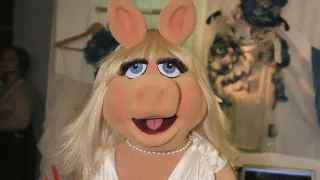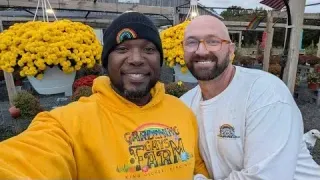
4 hours ago
How 'Dawson’s Creek' Sparked a Queer TV Revolution—Even When the World Wasn’t Ready
READ TIME: 3 MIN.
It’s 1998. You’re clutching the remote, dial-up is screeching in the next room, and the WB’s Dawson’s Creek is about to rewrite the script for queer teens everywhere. Enter Jack McPhee, played by Kerr Smith, whose coming-out storyline didn’t just ripple through Capeside—it sent a tidal wave across pop culture, sparking fierce debates and, yes, a lot of angry letters from viewers who weren’t ready to see two young men share a kiss in prime time .
Jack’s journey wasn’t just another soapy subplot. Smith recently revealed just how seismic the decision was behind the scenes: “Nobody knew—not even the network or the studio—until the last possible moment,” he shared, describing how Jack’s sexuality was “such a closely-guarded secret” at every level of production .
For a generation that lived through the era of coded queer characters and “very special episodes,” Jack’s storyline was a breath of fresh, if controversial, air. Smith remembers the backlash: “People were angry as hell,” he admits—a stark reminder that visibility often comes at a cost .
At the time, TV networks were wary of offending advertisers and conservative audiences. Queer representation was still largely relegated to punchlines or stereotypes, with few authentic portrayals making it to network prime time . The creative team behind Dawson’s Creek knew they were taking a risk. The gamble? Giving Jack a storyline that didn’t revolve around tragedy or shame, but about finding himself, his first crush, and yes—a slow, sweet first kiss that would become iconic for LGBTQ+ fans.
The blowback was immediate. Smith recalls that the show received a deluge of negative feedback as soon as Jack’s sexuality became clear. Yet, for every angry viewer, there were countless queer youth who finally saw themselves reflected onscreen—not as a villain, not as a joke, but as a real, complicated teenager navigating love and friendship .
Smith’s willingness to step into Jack’s shoes can’t be understated. At a time when being out—on screen or off—was still considered risky for an actor’s career, his portrayal offered comfort and courage to those who needed it most. “You don’t realize until much later what it meant to people,” Smith has said, reflecting on fan letters and encounters with viewers who credit Jack’s story with helping them come out or simply feel less alone .
Looking back, it’s easy to forget how radical Dawson’s Creek was in its day. Today’s TV landscape is teeming with queer characters: from Heartstopper’s tender teen romances to RuPaul’s Drag Race’s unapologetic fabulousness. Yet every rainbow on screen owes something to Jack McPhee’s tentative, world-shaking kiss.
Smith’s story is a reminder that queer milestones are rarely greeted with open arms—but that doesn’t make them any less vital. It’s a testament to what happens when storytellers take risks, even when “people are angry as hell.” Every protest letter sent to the WB was, in its own way, proof that the world was changing—even if it had to be dragged, kicking and screaming, into a more inclusive future .
For LGBTQ+ audiences and allies, the legacy of Dawson’s Creek is more than nostalgia. It’s a challenge: to keep pushing for stories that reflect the full spectrum of queer life, even when—or especially when—the world isn’t ready. Because someone, somewhere, is waiting to see themselves in the story.






